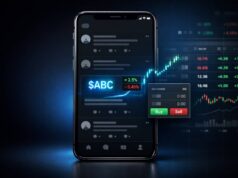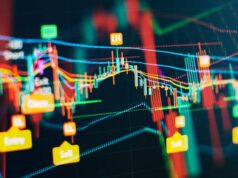In a significant development in the U.S. Securities and Exchange Commission’s (SEC) ongoing efforts to regulate decentralized finance (DeFi) platforms, Mango Markets has agreed to destroy all of its MNGO tokens. As part of a settlement, the platform alongside its affiliated entities, will pay $700,000 in penalties for the unregistered sale of these tokens, which the SEC has deemed to be securities.
The SEC accused Mango Markets and its related entities – Mango DAO and Blockworks Foundation – of violating U.S. securities laws. They raised more than $70 million selling MNGO tokens. The tokens were introduced in August 2021 and were marketed globally, including to U.S. investors. However, they were not registered as required under the Securities Act of 1933.
The SEC’s Increasing Scrutiny of DeFi Projects
The Mango Markets case is part of a broader regulatory sweep by the SEC targeting DeFi platforms that have skirted traditional securities laws. The SEC has made it clear that decentralized entities, such as DAOs, are not immune to regulatory obligations. Jorge Tenreiro, Acting Chief of the SEC’s Crypto Assets and Cyber Unit, emphasized that using labels like “DAO” or employing open-source software does not exempt organizations from compliance. According to the SEC, Mango DAO’s failure to register the MNGO token sale deprived investors of vital protections.
This case builds on earlier regulatory actions targeting projects within the cryptocurrency space. The SEC has consistently warned that digital assets, including governance tokens such as MNGO, can be classified as securities depending on their use and sale structure. By enforcing the destruction of MNGO tokens, the SEC is sending a clear message to other DeFi projects: circumventing securities regulations, even with decentralized governance, will not go unchallenged.
Token Destruction and Broader Implications
One of the most notable aspects of this settlement is the order to destroy all existing MNGO tokens. Mango Markets and its affiliated entities have committed to requesting that trading platforms delist the token. It will be inaccessible to the public. The destruction of these tokens is a rare move, underlining the gravity of the regulatory breach. By removing MNGO from circulation, Mango Markets effectively prevents any further trading or investment in the unregistered asset.
The implications for other DeFi platforms are significant. Many decentralized projects have relied on token sales without registering with the SEC. They were operating under the assumption that decentralized governance or innovative legal structures would shield them from regulatory scrutiny. This settlement sets a precedent. Even decentralized platforms must adhere to federal securities laws if their tokens meet the definition of a security.
The Role of the 2022 Hack in SEC’s Investigation
The SEC’s scrutiny of Mango Markets intensified following the platform’s high-profile hack in October 2022. The exploit, which drained over $100 million from Mango Markets, drew significant attention from regulators. The hacker, Avraham Eisenberg, was later arrested and charged with wire fraud and market manipulation. This incident likely accelerated the SEC’s investigation into Mango’s operational and financial practices.
>>> Read more: Will SEC Settlement Force MNGO Token Shutdown?
A Precedent-Setting Case for DAOs
The Mango Markets case is one of the highest-profile examples of the SEC targeting a decentralized autonomous organization (DAO). The regulatory body has made it clear that DAOs, despite their decentralized nature, are not exempt from compliance with federal securities laws. This case will likely serve as a reference point for other projects operating within the DeFi space, especially those offering governance tokens similar to MNGO.
As the SEC continues its enforcement actions, DeFi projects will need to carefully consider their legal obligations under U.S. securities laws. Token destruction, as seen in the Mango case, may become a common outcome for projects failing to meet regulatory standards.
Readers’ frequently asked questions
Why did the SEC target Mango Markets, and does this put all DeFi projects at risk?
The SEC targeted Mango Markets due to its unregistered sale of MNGO tokens, which were deemed securities under U.S. law. The agency took issue with the failure to register the token offerings and the platform’s unregistered broker activity. Mango DAO and Blockworks Foundation sold over $70 million in MNGO tokens worldwide, including to U.S. investors. The key issue is that even decentralized organizations, like DAOs, must adhere to U.S. securities laws if their tokens qualify as securities.
Not all DeFi projects are automatically at risk. However, those issuing governance or utility tokens that could be classified as securities must take extra steps to ensure compliance with securities regulations. This case shows that decentralized governance structures do not exempt projects from regulatory scrutiny. This is especially true if they actively solicit U.S. investors or engage in securities transactions without proper registration.
What does the destruction of MNGO tokens mean for Mango Markets and its users?
The destruction of MNGO tokens is a direct result of the SEC settlement and involves Mango Markets removing these tokens from circulation. They must also request their delisting from exchanges. For users, this means that the tokens they may have invested in will become untradeable and essentially worthless. This is a significant blow to MNGO holders, as the SEC’s order effectively removes the token’s utility and market value. Additionally, the destruction of MNGO tokens impacts the platform’s governance structure, since these tokens were used to make decisions on the platform. Without the governance tokens, Mango Markets must rethink its governance model or introduce new mechanisms to engage users.
For the broader DeFi community, this action serves as a stark reminder of the risks involved in investing in projects that may fall afoul of regulatory authorities. The rapid and irreversible consequences of such regulatory actions highlight the need for projects to ensure compliance with securities laws before launching token sales.
How does this settlement affect the future of DAOs and decentralized governance in the crypto space?
The SEC’s settlement with Mango Markets has significant implications for DAOs and decentralized governance. The key takeaway from the SEC’s enforcement action is that decentralization does not provide immunity from securities regulations. The agency’s charges against Mango DAO signal that if a DAO is involved in activities that resemble those of a traditional financial intermediary – such as selling tokens that qualify as securities – then it must comply with U.S. laws governing such activities.
This case sets a precedent for future SEC actions. It may also prompt other DAOs to reassess their operations, particularly around token sales and how they engage investors. DAOs that issue governance tokens, raise capital, or facilitate financial transactions are now on notice. They cannot rely on their decentralized status to evade regulatory oversight. Instead, projects will likely need to incorporate legal safeguards, including SEC registration where applicable, to avoid similar penalties.
What Is In It For You? Action Items You Might Want to Consider
Review Your Exposure to Governance Tokens
With the SEC forcing Mango Markets to destroy its MNGO tokens, it’s a clear signal to evaluate your holdings in governance tokens across other DeFi platforms. If a token is later classified as a security, you could face significant losses if it is delisted or invalidated. Consider adjusting your portfolio to focus on tokens with clearer regulatory standing or those registered as compliant securities.
Stay Updated on Regulatory Developments
Given the increasing scrutiny of decentralized platforms by the SEC, it’s crucial to stay informed about the legal status of the projects you are investing in. Regularly check for news about enforcement actions and SEC filings related to DeFi platforms. Being aware of regulatory moves can help you act quickly and minimize risk.
Be Cautious with Unregistered Token Sales
If you’re considering investing in new DeFi projects, especially those offering governance or utility tokens, scrutinize whether the platform has complied with securities regulations. Ask whether they’ve registered with regulatory bodies like the SEC. This will help you avoid scenarios where you’re left holding tokens that lose value due to regulatory intervention.











I’m not a lawyer, but I do not believe that a settlement sets any sort pf precedent. Any precedent is established through court decisions.
Thank you for your input! You’re absolutely correct that legal precedents are established through court rulings, not settlements. While this settlement doesn’t create a legal precedent, it does set an industry example, showing how the SEC may handle similar cases in the future. Many in the crypto space interpret these actions as regulatory signals that influence behavior, even without formal court decisions.
[…] >>> Read more: Mango Markets to Destroy $70M in MNGO Tokens […]